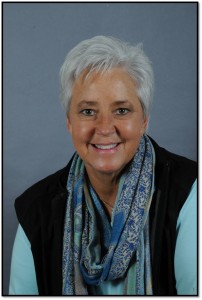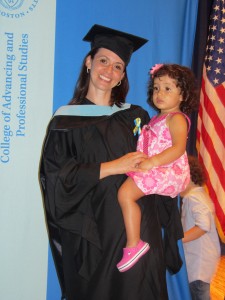 Thirty years ago this year the Instructional Design Graduate Program began changing the world through education and training. The graduate program in instructional media came to UMass Boston during the merger with Boston State College (BSC). In the fall of 1984, the thoroughly revised program was launched as the Master of Education in Instructional Media with Professor Marilyn Pula, originally from BSC, as its director. Its focus was preparing professionals in the emerging field of instructional design for corporate training and performance improvement. To better reflect the program’s learning objectives and outcomes, the name was formally changed to the Instructional Design Graduate Program during the 1986–87 academic year.
Thirty years ago this year the Instructional Design Graduate Program began changing the world through education and training. The graduate program in instructional media came to UMass Boston during the merger with Boston State College (BSC). In the fall of 1984, the thoroughly revised program was launched as the Master of Education in Instructional Media with Professor Marilyn Pula, originally from BSC, as its director. Its focus was preparing professionals in the emerging field of instructional design for corporate training and performance improvement. To better reflect the program’s learning objectives and outcomes, the name was formally changed to the Instructional Design Graduate Program during the 1986–87 academic year.
Since its founding, the program has kept pace with the tremendous changes in the field of instructional design, instructional technologies, and the needs of students. Insights from new research in how people learn, new demands for multi-modal delivery of instruction to global audiences, and the urgent need for performance improvement in the workplace have all helped shape our curriculum.
Today, the Instructional Design Graduate Program prepares students as curriculum-design specialists, educators, and trainers of adult learners in a variety of workplace settings, including business, industry, education, government, healthcare, and public service. It is “Olympic” in its international reach, conferring degrees or graduate certificates to students from Bulgaria, Canada, China, Columbia, Greece, Israel, Kosovo, Lebanon, Nigeria, Saudi Arabia, South Africa, Spain, Syria, Qatar, and many more.
There have been several graduate program directors over the years, but I would be terribly remiss not to mention one in particular—Canice McGarry. Canice was the glue that kept this program together throughout the years. On several occasions during her 26 year tenure with the program she stepped in as interim director, ensuring continuity and smooth operation of the program when it was most critically needed. Canice was my esteemed mentor when I was a student in this program and though she retired in 2011, her dynamic presence is still felt in these hallowed corridors of Wheatley Hall.
I have tremendous pride in being a part of the Instructional Design Graduate Program team. Our wonderful staff, dedicated faculty, and brilliant students work collaboratively to create dynamic teaching and learning experiences, whether in the traditional classroom or in the online environment. Together with our alumni we create a learning community of highly skilled and knowledgeable educators prepared for leadership roles in the instructional design industry.
May this program continue to thrive and grow for many more years to come!
 Philip DiSalvio, EdD, Dean, College of Advancing and Professional Studies (CAPS)
Philip DiSalvio, EdD, Dean, College of Advancing and Professional Studies (CAPS) Dennis Maxey, PhD, Associate Dean, College of Advancing Professional Studies (CAPS)
Dennis Maxey, PhD, Associate Dean, College of Advancing Professional Studies (CAPS)



 Can children intervene when they see someone being bullied? Can bullies learn to behave differently? Alumna, Janice Houlihan, cofounder of the nonprofit Inner Explorer (IE), answers these questions with a resounding “Yes!” “Mindfulness practices help the bully, victim, and any witnesses involved develop a deeper awareness of themselves, resilience, compassion, and a greater ability to regulate their emotional responses.”
Can children intervene when they see someone being bullied? Can bullies learn to behave differently? Alumna, Janice Houlihan, cofounder of the nonprofit Inner Explorer (IE), answers these questions with a resounding “Yes!” “Mindfulness practices help the bully, victim, and any witnesses involved develop a deeper awareness of themselves, resilience, compassion, and a greater ability to regulate their emotional responses.”





 Thirty years ago this year the Instructional Design Graduate Program began changing the world through education and training. The graduate program in instructional media came to UMass Boston during the merger with Boston State College (BSC). In the fall of 1984, the thoroughly revised program was launched as the Master of Education in Instructional Media with Professor Marilyn Pula, originally from BSC, as its director. Its focus was preparing professionals in the emerging field of instructional design for corporate training and performance improvement. To better reflect the program’s learning objectives and outcomes, the name was formally changed to the Instructional Design Graduate Program during the 1986–87 academic year.
Thirty years ago this year the Instructional Design Graduate Program began changing the world through education and training. The graduate program in instructional media came to UMass Boston during the merger with Boston State College (BSC). In the fall of 1984, the thoroughly revised program was launched as the Master of Education in Instructional Media with Professor Marilyn Pula, originally from BSC, as its director. Its focus was preparing professionals in the emerging field of instructional design for corporate training and performance improvement. To better reflect the program’s learning objectives and outcomes, the name was formally changed to the Instructional Design Graduate Program during the 1986–87 academic year.
